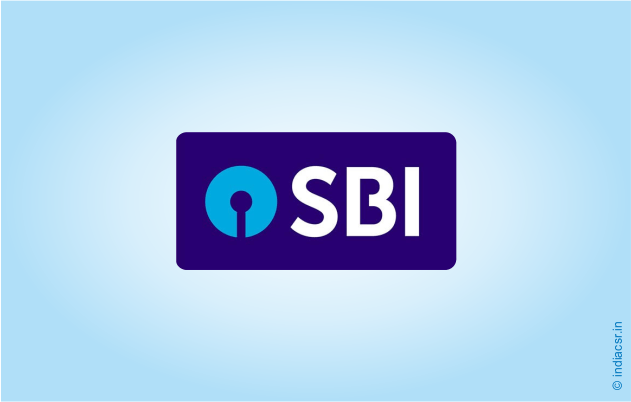SBI Environmental, Social, and Governance (ESG) Financing Framework
The State Bank of India (SBI), India’s largest commercial bank, has adopted an ambitious Environmental, Social, and Governance (ESG) Financing Framework. This framework marks a significant stride in aligning the bank’s operations with sustainable development goals and global ESG standards.
Background and Significance
Having its origins in 1806, the State Bank of India (“SBI” or “Bank”) is the oldest commercial bank in the Indian subcontinent, strengthening the nation’s economy and serving the aspirations of its vast population. It is India’s largest commercial bank in terms of assets, deposits, profits, branches, number of customers, and employees, enjoying the continued faith of millions across the social spectrum. Headquartered in Mumbai, SBI provides a wide range of products and services to personal, commercial, large corporate, public, and institutional customers through its branches and outlets, joint ventures, subsidiaries, and associate companies.
Environmental, Social And Governance (“ESG”) Approach
SBI is cognizant of the responsibility that comes with the privilege of being India’s largest public sector bank. The Bank remains unwavering in its commitment to create value for stakeholders and drive a sustainable society and future. To this end, SBI has an integrated sustainability approach that seeks to leverage the synergy and interconnection between social, environmental, and economic aspects of business, echoing the vision, mission, and values of the bank. Environmental, social, and corporate governance are at the heart of SBI’s strategy.
SBI has several frameworks and policies to support ESG, including, but not limited to, a Climate Change Risk Management Policy, a Energy Policy, Sustainability and Business Responsibility Policy, a Social Responsibility Policy, Code of ethics, etc. Further, we have a separate green bond framework in place. The Bank’s Corporate Center Sustainability Committee (CCSC) undertakes the execution of the Sustainability and Business Responsibility (BR) Policy. This policy helps align the bank’s sustainability strategy with its business strategy and identifies the key environmental and social areas.
Further, it outlines SBI’s approach to managing economic, environmental, and social performance in an integrated manner. The committee has representation from several functions and is headed by the Deputy Managing Director and Corporate Development Officer. The bank also has a separate board-level corporate social responsibility committee, which undertakes periodic reviews of the bank’s CSR activities.
SBI has been committed to ensuring ethical business practices and transparency throughout its operations. To strengthen its commitment to upholding the highest standards of integrity and conduct, the bank has instituted an Ethics and Business Conduct function.
SBI’s Contribution to Sustainable Development Goals (SDGs)
As a responsible organization, SBI recognizes its role in supporting India’s efforts to achieve the 2030 agenda for sustainable development set by the United Nations. To contribute to this goal, the bank has introduced several products and services aimed at supporting India’s commitments.
Finance for Biofuel Projects: SBI provides loans for corporations interested in replacing existing feedstocks such as coal or fossil fuels with biomass. This financial support helps meet the capital expenditure requirements for such projects.
Sanjeevani: SME Loan for Healthcare Sector: In an effort to enhance healthcare infrastructure in the country, SBI has introduced a loan product tailored for units engaged in manufacturing liquid oxygen, oxygen cylinders, and existing hospitals setting up oxygen plants.
Stree Shakti Entrepreneur Loan: In collaboration with the World Bank and UN Women, SBI has designed a loan product to provide affordable institutional credit to women entrepreneurs. Priority is given to those graduating from self-help groups (SHG) or involved in the supply chain of business enterprises across various sectors.
YONO Krishi Safal Dairy Loan: This pre-approved and hassle-free credit facility on the YONO platform supports farmers’ dairy farming needs through partnerships with corporations.
Skill Loan Scheme: Designed to help individuals enhance their skills and improve livelihoods, this scheme promotes inclusive and equitable quality education and opportunities for all.
SBI e-Mudra: SBI’s e-Mudra extends digital term loans up to Rs 50,000 to micro-entrepreneurs, addressing key business requirements and contributing to employment generation. As of March 31, 2022, over Rs 9.34 billion has been sanctioned under this scheme.
Compressed Biogas (CBG) under the SATAT Scheme: SBI provides loans for CBG plants under the sustainable alternative towards an affordable transportation scheme, fostering large-scale employment and sustainable industrialization.
Green Car Loan: The bank promotes cleaner mobility through the green car loan scheme, offering a longer repayment period of up to eight years and a concession of 20 basis points (bps) on the interest rate compared to regular car loans.
SHG Financing: SBI supports self-help groups (SHGs) with funds to generate sustainable livelihoods, with a focus on promoting gender equality.
Financing Polyhouse: To address the goals of zero hunger, good health and well-being, sustainable consumption and production, and climate action, SBI finances polyhouse farming projects to enhance yields.
Financing Solar Photovoltaic Pump Sets: SBI helps fund the purchase of solar water pumping systems, aligning with the PM Kusum Yojana, to provide a sustainable livelihood for farmers and reduce the environmental footprint.
Grid-Connected Rooftop Solar PV Projects: SBI has sanctioned Rs 10.89 billion for rooftop solar PV projects as of March 31, 2022, to popularize renewable energy in commercial institutions and industrial buildings with smaller roofs.
Healthcare Business Loan: SBI has sanctioned healthcare business loans worth Rs 396.7 million as of March 31, 2022, to facilitate access to better healthcare in smaller cities and villages.
Affordable Home Loan: SBI assists individuals in achieving the dream of owning a house through its home loans, with 58.19% of home loans provided being affordable housing loans.
E-Rickshaw Scheme: SBI has sanctioned Rs 120.6 million for electric rickshaws, promoting the use of cleaner fuel and encouraging environmentally friendly practices.
Mainstreaming ESG Approach in Banking
As the largest public sector bank in India, SBI recognizes the profound impact its actions as a lending institution can have on the environment and society. The bank is committed to creating positive environmental impacts, both directly and indirectly, and takes measures to mitigate any adverse effects of its operations. SBI integrates various environmental, social, and governance (ESG) criteria into its lending decisions, ensuring that it funds institutions aligned with responsible practices.
SBI employs a framework to assess borrowers based on ESG criteria, emphasizing the mandatory rating of these criteria for specified borrowers. This includes both existing and prospective borrowers in India, with exposure exceeding Rs 100 crore (for listed borrowers) and Rs 500 crore (for unlisted borrowers) at the time of credit rating agency assessment. Furthermore, SBI has established a Green Bond Framework to outline the issuance of Green Bonds, utilizing the proceeds for environmentally friendly projects within the framework defined by the Climate Bonds Initiative (CBI) under the Climate Bonds Standard Version 2.1.
Sustainability Reporting
The Bank’s Annual Sustainability Report adheres to the Global Reporting Initiative Standards (GRI) and aligns with the nine principles of the National Voluntary Guidelines on Social, Environmental, and Economic Responsibilities of Business (NVGs) set by the Ministry of Corporate Affairs, Government of India. Additionally, the reporting framework aligns with the International Integrated Reporting Council (IIRC) and standards defined by the Sustainability Accounting Standards Board (SASB). The report incorporates recommendations from the Task Force for Climate-Related Financial Disclosures (TCFD) and highlights initiatives aimed at advancing the United Nations Sustainable Development Goals (SDGs). It also endeavors to include information on Business Responsibility and Sustainability Report (BRSR) disclosures prescribed by the Securities and Exchange Board of India. The bank publishes this sustainability report annually, and the latest version is accessible on the bank’s website.
Purpose of ESG Financing Framework
The Environmental, Social, and Governance (ESG) Framework, presented in this document, serves as a guide for SBI’s future issuance of green, social, or sustainable instruments (bonds and/or loans). These instruments will be utilized to finance or refinance eligible assets or projects with environmental or social benefits, contributing to SBI’s sustainability strategy and the sustainable development of the Indian economy. The net proceeds from such ESG instruments, or an equivalent amount, will be allocated for the financing or refinancing of “eligible projects” as defined in Section 4.2 of the Framework (“Eligibility Criteria”). The existing Green Bond Framework will be subsumed under the proposed ESG Financing Framework.
What is State Bank of India (SBI)?
The State Bank of India (SBI) is the largest and one of the oldest commercial banks in India. It is a public-sector banking and financial services statutory body, headquartered in Mumbai, Maharashtra. SBI operates as a government corporation and is a major player in the Indian banking sector. It offers a wide range of services, including retail banking, corporate banking, international banking, and Treasury operations. SBI is known for its extensive domestic presence with branches across India and also has a significant international presence.
SBI: Pioneering India’s Banking Legacy Since 1806
Established in 1806, the State Bank of India (SBI) stands as the oldest commercial bank in the Indian subcontinent, playing a pivotal role in bolstering the nation’s economy and fulfilling the aspirations of its vast population. As India’s largest commercial bank, SBI leads in terms of assets, deposits, profits, branches, customers, and employees, earning the unwavering trust of millions across diverse social segments. Headquartered in Mumbai, SBI offers a comprehensive range of products and services to personal, commercial, large corporate, public, and institutional customers through its extensive network of branches, outlets, joint ventures, subsidiaries, and associate companies
Source : indiacsr.in




